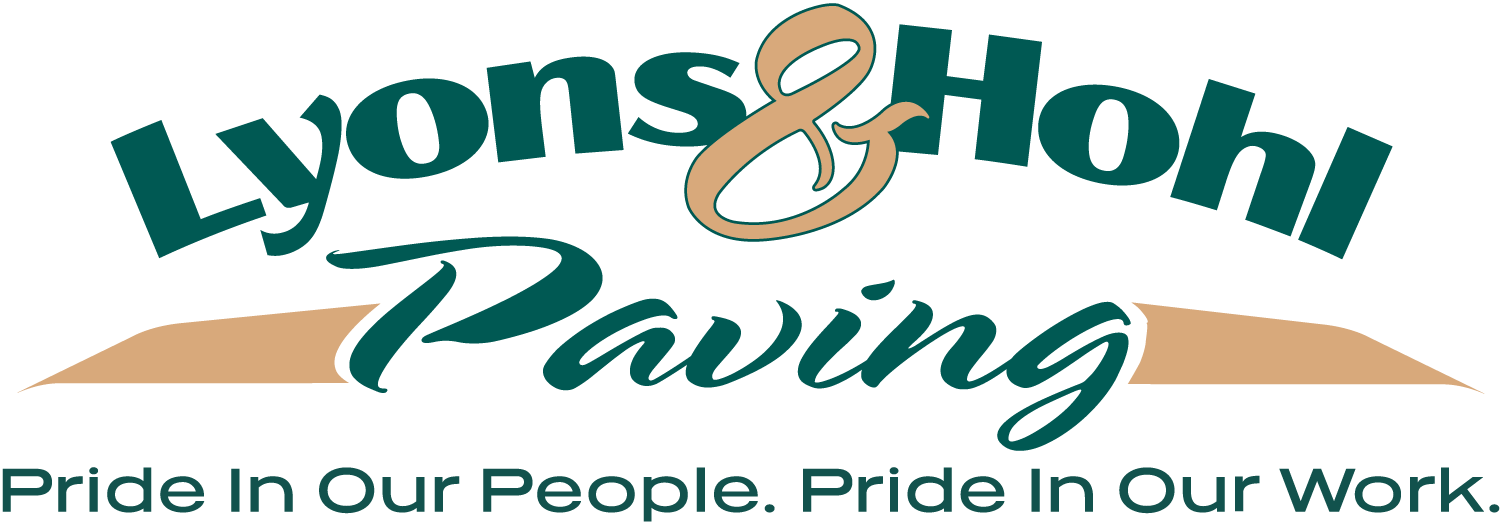WHY ASPHALT IS THE BEST RESIDENTIAL DRIVEWAY PAVING OPTION
We often hear home improvement experts on TV talking about boosting “curb appeal,” which is how your house looks to approaching visitors or people passing by on the street.
To make the best first impression, you want to assure that your landscaping is tidy and attractive, your siding isn’t faded, and you don’t have a lot of kids’ toys or old lawn equipment laying around, among many other aesthetic issues.
But, have you considered how your driveway figures into the presentation?
You may not think much about that paved or stone surface that connects your home to the actual curb and beyond, but if it’s in poor condition or made of subpar material, it’s quietly undermining all your hard work and ruining your home’s appeal. Especially if you’re planning to sell your home in the near future, having a professional asphalt contractor pave or resurface your driveway should be at the top of your improvement to-do list.
Today’s post highlights a few of the materials your home’s driveway and parking areas may be surfaced with now and shows you why asphalt is undeniably the better choice for residential applications.
Driveway Materials You May Have Now
While you likely have an asphalt driveway now, especially if you live in a suburban development here in our home service area around Lancaster, Berks, Chester, Delaware, and Montgomery counties in PA, it’s probably in need of maintenance or resurfacing. Asphalt driveways are very easy to live with compared to many other materials, but they do require some care, such as seal-coating on a regular schedule.
Other driveway surfaces you may currently have include:
Stone/Gravel
Gravel driveways or parking pads are often installed because they are initially very affordable. You can hire any number of landscaping businesses or material retailers to drop a load of stone on your property that you can rake into place yourself. And stone will offer a decent look for a while, especially if the area you are covering is perfectly flat. Gravel/stone material is also good for drainage.
With gravel, however, you’ll be in for trouble come winter—even fans of gravel driveways admit that it’s extremely difficult to clear snow from without disturbing the material. It is also prone to washing out during heavy storms and doesn’t keep weeds from growing up. This means you’ll often either be adding more new stone to the driveway, smoothing out existing stone—and perhaps worst of all—weeding. For all these reasons, gravel is not considered to be a permanent driveway surface material.
Concrete
The internet is full of articles comparing concrete and asphalt for residential driveway surface options. Concrete can be easily colored and offers a more delicate look that some homeowners prefer. It’s also more expensive than asphalt to install, which leads many to believe that it’s a more “premium” choice.
Unfortunately, in our climate here in Pennsylvania, in which winters can sometimes be harsh and cold, concrete is not ideal as a large surface covering. Even with excellent professional installation, the material itself simply isn’t very cold hardy—it cracks and buckles due to temperature changes and quickly becomes hazardous as it breaks apart and crumbles. While asphalt can be susceptible to extremely hot temperatures, we typically don’t have more than a heat wave or two per summer that could even come close to damaging your driveway as severely as the freeze/thaw cycle damages concrete.
Brick/Pavers
Another option for your driveway that’s considered “premium” because it costs more are bricks or concrete pavers. While these individual blocks are strong and typically quite resistant to damage individually, problems arise because they do not form a solid surface. For this reason, they are prone to freeze/thaw cycle damages like concrete and do not keep weeds at bay over time.
While you may have a brick or paver patio that has performed well and not experienced issues with sinking or low spots creating loose blocks, remember that your driveway is designed to be driven and parked on. Your family’s cars, trucks, and SUVs each weigh multiple tons and can easily cause a brick or paver surface to become uneven, which will necessitate expensive repairs.
Grass/Mud
If you live on a farm or rural property, you may just allow your family members and guests to park anywhere near your house, whether areas are paved or not. This is obviously fine from time to time, but if you regularly have workers coming and going or you own a lot of vehicles, allowing parking in field areas or your yard quickly becomes a muddy mess that likely annoys everyone involved (whether they express it or not)! Parking in the dirt simply is not an enjoyable experience.
How Asphalt Paving is Better
As we’ve touched on already, asphalt paving checks a lot of boxes in the “pros” column for residential driveways and parking areas. Asphalt won’t wash away like gravel, won’t crack apart if water freezes on and around it like concrete, and keeps weeds and dirt away. After all, there’s a reason why most commercial businesses that experience a lot of daily traffic have asphalt parking lots and access drives—it’s because this material is durable and resistant to damage in ways most others are not.
Additionally, if you properly care for your professionally installed asphalt surfaces, they will look as good as new for years to come.
Need a New Driveway? Lyons & Hohl Can Pave It!
It’s true that many professional paving contractors like us here at Lyons & Hohl spend a good deal of our time working on large commercial and industrial paving projects, but we also love to help homeowners improve their properties! Whether your current driveway needs maintenance or your farm needs upgraded parking areas, we’re here to help with professional and affordable paving solutions.
